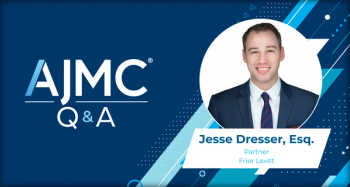
Current Strategies and the Potential of CAR T-Cell Therapy in Relapsed and Refractory MCL
Mantle cell lymphoma is a difficult cancer type with high relapse rates, but novel targeted approaches such as CAR T-cell therapy hold promise for more successful response rates in the future.
First-line treatment strategies for mantle cell lymphoma (MCL) currently range from intensive chemotherapy and autologous stem cell transplant (ASCT) to combination regimens and novel targeted therapies. As
MCL is a B-cell malignancy that is rare and challenging to treat, and relapse rates are high. In most cases of MCL, the chromosomal translocation t(11;14) causes overexpression of the cyclin D1 (CCND1) gene, although other mechanisms are also involved. Despite progress in identifying the pathogenesis and risk factors of MCL, there are still no curative treatments for it.
In the first-line setting, the current standard treatment for otherwise healthy younger patients is intensive immunochemotherapy, potentially followed by ASCT to improve response duration. Older patients who cannot tolerate intensive treatment typically undergo treatment with more tolerable combination regimens.
When patients relapse, targeted agents are generally used in lieu of the chemoimmunotherapy seen in first-line treatment. Initially, bortezomib, temsirolimus, and lenalidomide were the only approved targeted second-line treatments, but the current treatment landscape also includes agents such as Bruton tyrosine kinase (BTK) inhibitors, BCL2 inhibitors, lenalidomide, and venetoclax. Three BTK inhibitors — ibrutinib, acalabrutinib, and zanubrutinib — are currently approved for relapsed or refractory MCL.
Response rates have been promising with targeted therapies, but response durations are often limited—and even on these regimens, many patients relapse. In patients with known risk factors such as TP53 aberrations, high Ki-67, or those whose disease progresses on BTK inhibition, treatment is even more challenging and novel approaches must be identified to improve outcomes.
In recent years, CAR T-cell therapy has emerged as a promising treatment option in hematological cancers, including B-cell lymphomas. Four CAR T-cell therapies targeting CD19 are currently approved for B-cell lymphomas: axicabtagene ciloleucel (axi-cel) is approved for diffuse large B-cell lymphoma (DLBCL) in the third-line setting, tisagenlecleucel (tisa-cel) is approved for relapsed and refractory DLBCL, lisocabtagene maraleucel (liso-cel) is approved for DLBCL, and brexucabtagene autoleucel (brexu-cel) is approved for relapsed or refractory MCL.
While research on CAR T-cell therapy is limited in MCL compared with other types of cancer, the review authors highlight 2 trials of brexu-cel and liso-cel in relapsed and refractory MCL.
In the phase 2 ZUMA-2 trial (
The TRANSCEND NHL 001 study (
In the future, different combinations and novel agents such as second-generation BTK inhibitors that are currently in development may produce more favorable results for patients with MCL. Determining proper sequencing for combination therapies and the best ways to use CAR T-cell therapy are also important factors, the authors noted.
While there has been progress in MCL research and treatment development, it still remains incurable, and the authors point to novel targeted agents and potential combinations with CAR T-cell therapies as likely future routes for progress.
Reference
Tbakhi B, Reagan PM. Chimeric antigen receptor (CAR) T-cell treatment for mantle cell lymphoma (MCL). Ther Adv Hematol. Published online February 26, 2022. doi:10.1177/20406207221080738
Newsletter
Stay ahead of policy, cost, and value—subscribe to AJMC for expert insights at the intersection of clinical care and health economics.
















